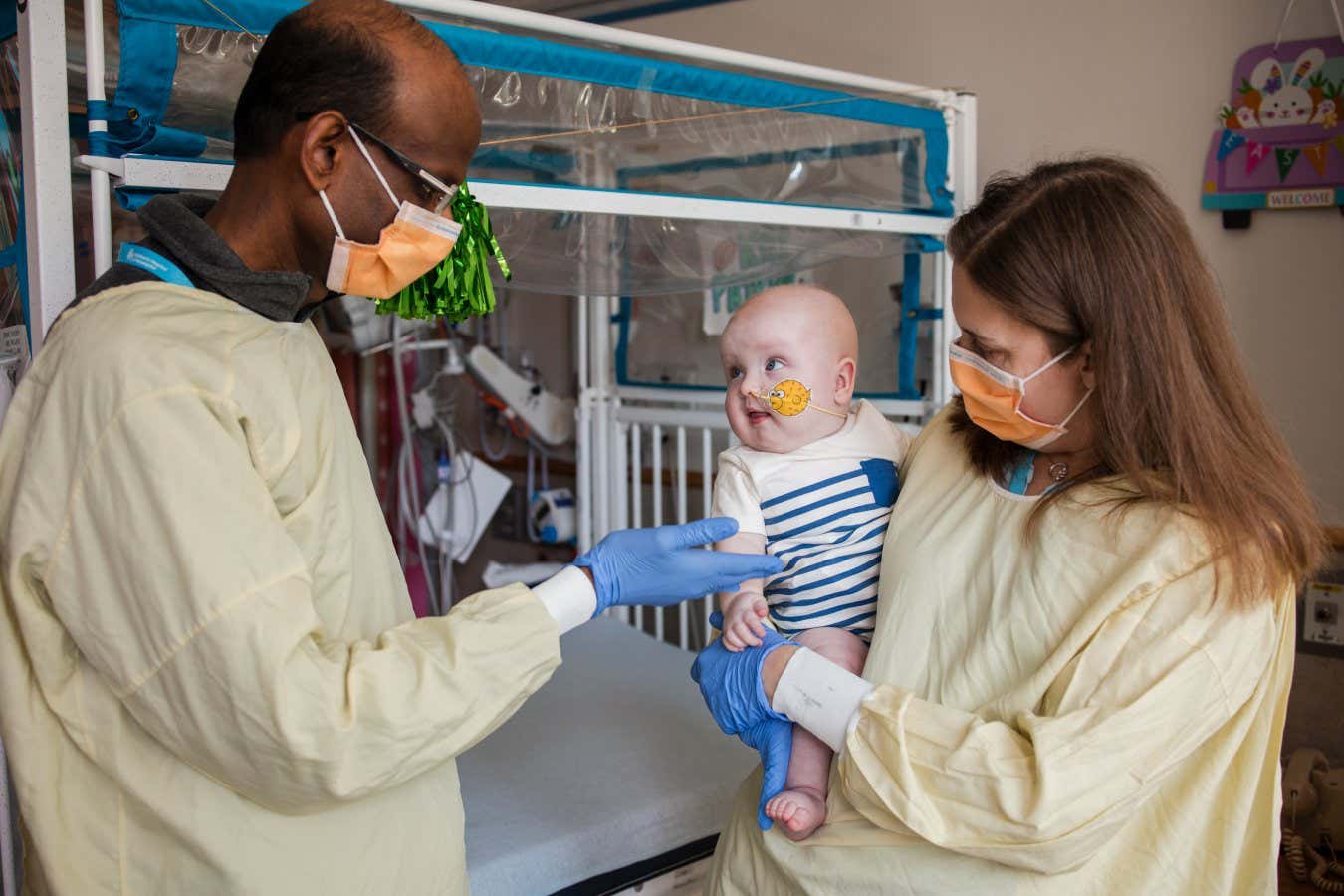Now Reading: Infant with Rare Disease Receives World-First CRISPR Gene Therapy
1
-
01
Infant with Rare Disease Receives World-First CRISPR Gene Therapy
Infant with Rare Disease Receives World-First CRISPR Gene Therapy

Swift Summary
- Baby KJ, diagnosed with a rare genetic condition caused by mutations in his CPS1 enzyme gene, became teh first person to receive a bespoke CRISPR gene-editing therapy tailored specifically to correct his unique disease-causing mutation.
- The treatment was developed in response to life-threatening symptoms where ammonia buildup in the blood damaged KJ’s brain due to poor protein breakdown. Without intervention, more than half of children with CPS1 deficiency do not survive.
- U.S regulators accelerated approval of the treatment due to it’s urgency; FDA approved within one week when KJ was six months old. He underwent treatments between February and April 2025, showing early signs of advancement and requiring fewer medications while better tolerating protein intake.
- Researchers Rebecca Ahrens-Nicklas and Kiran Musunuru hope thier success inspires further development of personalized gene-editing therapies for rare conditions previously deemed untreatable.
- cost concerns remain for such individualized approaches-as stated by Musunuru-but economies of scale may reduce expenses over time as platform-based therapeutic models expand regulatory approval efficiency across diverse genetic mutations.
!251387233.jpg”>KJ with his family after the treatment
Credit: Children’s Hospital of Philadelphia
Stay Informed With the Latest & Most Important News
Previous Post
Next Post
Loading Next Post...

























